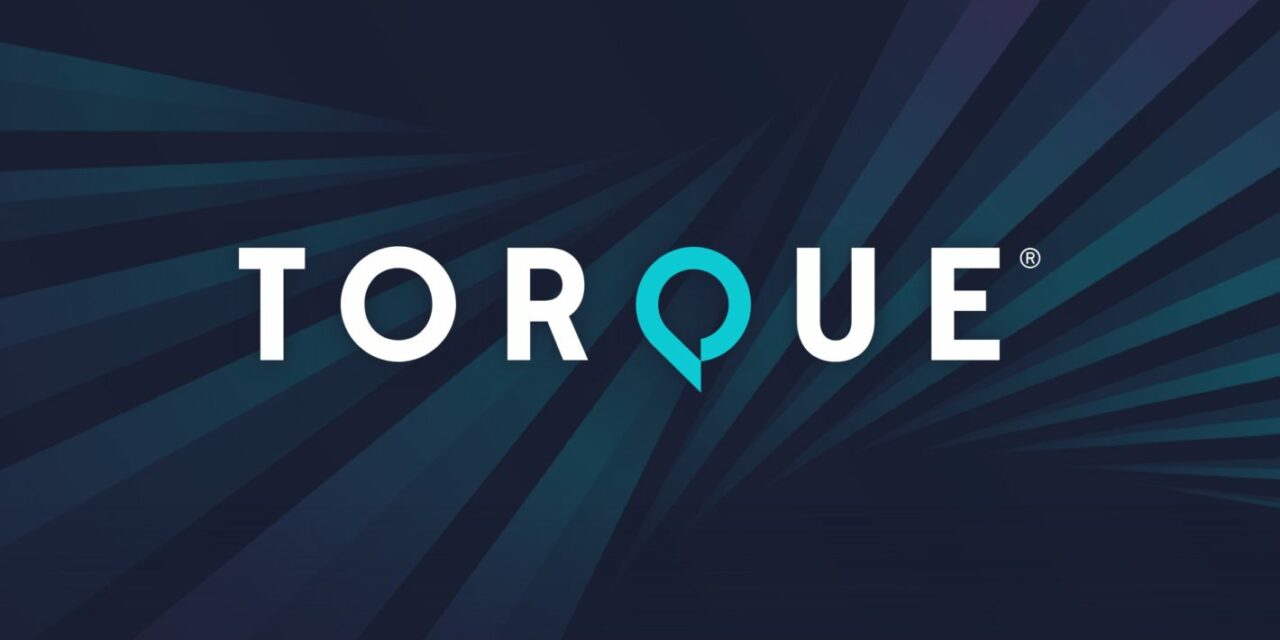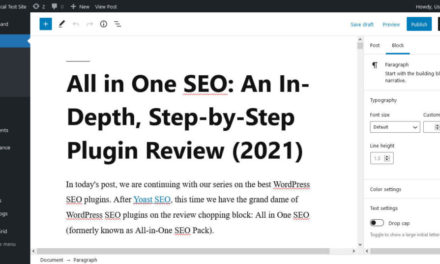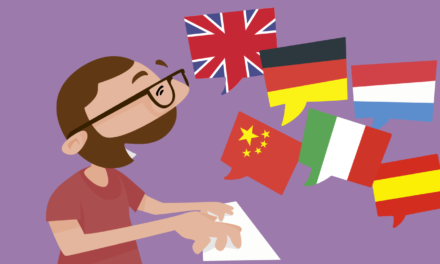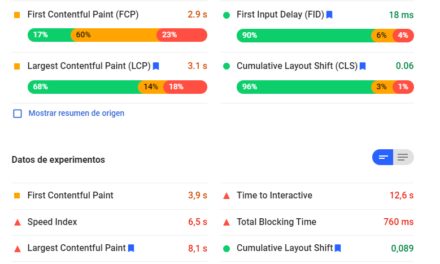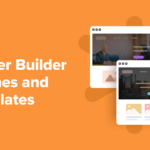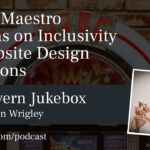Welcome to Press This, the WordPress community podcast from WMR. Each episode features guests from around the community and discussions of the largest issues facing WordPress developers. The following is a transcription of the original recording.
Powered by RedCircle
Doc Pop: You’re listening to Press This, a WordPress Community Podcast on WMR. Each week we spotlight members of the WordPress community. I’m your host, Doc Pop. I support the WordPress community through my role at WP Engine, and my contributions over on TorqueMag.Io where I get to do podcasts and draw cartoons and tutorial videos. Check that out.
You can subscribe to Press This on Red Circle, iTunes, Spotify, your favorite podcasting app or you can download episodes directly at wmr.fm.
Today we have a very special guest joining us. We’re thrilled to have Hari Shanker, an open source program manager at Automattic and a key contributor to the WordPress ecosystem. Hari is currently focusing on improving the experience for WordPress contributors and Hari has been instrumental in developing the Contributor Working Group and the Mentorship Program. Today we’ll dive deep into those exciting initiatives and explore how they’re shaping the future of WordPress. Welcome to the show, Hari. I want to just ask you from the start, how did you get into WordPress?
Hari Shanker: Hey Doc, excited to be here. So my WordPress story is pretty interesting. I’ll try to keep it as short as possible. So I was a college student. I was doing some freelance work on the side. This is way back in 2007, and I was helping out a couple of friends doing a startup and we were hand coding websites in html.
That was our side gig while we were in college. So my friend showed me this web application, which allows you to create websites without having to write a line of code. And that was WordPress and I got hooked ever since. I was also blogging on the side. I was on Blogger, so this got me to move to WordPress.com, which eventually got me to self hosted WordPress.
Then I was building websites on the side and I got hooked on the entire ecosystem. It was my first foray to open source as well. And ever since I’ve been on it. Then WordPress has led me to different ways. So even after college, all the jobs that I did were related to WordPress. I was freelancing, I was doing some journalist work on the side, but even though that was my focus, I did try to have WordPress in my life one way or the other.
Then briefly, I switched paths. I was working in a bank. I moved away. So I’ve done a lot of odd jobs, but any opportunity that I had, I always had WordPress. So eventually, somehow that journey brought me to Automattic where I joined as a Happiness Engineer.
And as of 2020 I moved my role. I’m currently working full-time on WordPress Open Source because I believe the open source software is very close to my heart. That’s what it’s literally given me everything that I have today, and I’m immensely grateful. So I’m excited to be working full-time on WordPress.
I was a community deputy. I still am. And from 2020 through 2022, I was supporting WordPress events helping WordCamps and meetups. So from 2022, I’ve been working on what you mentioned about me before. I’ve been an open source program manager, and I’m trying to improve or support the WordPress Contributor ecosystem.
To help Five for the Future on one side and to help volunteer contributors or selfs sponsored contributors. And one of the initiatives that I’m working with, the Contributor Working Group is to create a mentorship program. So that’s my story in a very capsule type format.
Doc Pop: Yeah. And I wanna say you’ve had a very interesting life. I read your story on the Hero Press post. So if people wanna hear a little bit more in your own words about how WordPress changed your life and made you so passionate about WordPress and Open Source, they can find that on Hero Press.
You mentioned the WordPress Contributor working group, and we both talked about it a little bit. What led to the development of the WordPress Contributor Working Group and what are its main objectives?
Hari Shanker: Ooh, that’s an excellent question. So the Contributor Working Group was formed as a result of some major gaps in the workforce Contributor ecosystem. So since last year, folks working on contributions, they’ve identified some issues with Five for the Future and what was contribution in general?
So these are things that have already always been talked about. So as part of my work, I decided to do research and I spoke to a lot of contributors. I read a lot of posts. I did some of my own experiments and I published a WordPress Contributor journey post in the make project blog, and I asked for feedback.
So the idea is I was trying to showcase how the contribution flow currently works in WordPress in that post. And the feedback that I got was that there’s currently a problem. So people come into WordPress, they want to contribute. But they get stuck at some point. So what is the blocker? The blocker is that there’s too much information or they’re unable to find guidance.
So that seems to be the biggest problem. And a couple of the recommendations that we got from folks, in fact, that actually stood out from all the feedback that I got, so this post is actually in the Make project blog. So if you look at the comments, the major theme that stood out was there’s a need for mentorship, there’s a need for people, there’s a need for contributors to support other people.
So there’s a bunch of other things that can be done to improve the contributor experience, like improving the tooling and improving the overall UI/UX of contribution. But mentorship seemed to be something that really stood out. So I thought about it a bit, and I discussed it with a couple of community members. So there was a WordPress Contributor working group that was created during the pandemic for the make community team.
So I spoke with the folks who used to organize that and I’m proposing that we relaunch this working group with the idea of creating a mentorship program. So this was a proposal I was not expecting a lot, but I was overwhelmed by the positive response to that proposal.
So following that we set up a working group. We launched a working group. We put out a call for volunteers, which also got an overwhelming response. And in the meantime I thought about this a bit, and created a framework for testing this out. We know that mentorship is important, but we need to see if this works right.
So the working group was formed and in our first chat I shared an example of what this would look like. And again everybody seemed to be interested. And together we started working towards that. We started iterating on it, and we created a pilot. So yeah, but that’s the story of how the working group came into place.
And we are currently focusing exclusively on mentorship. So mentorship as a way to improve the entire contributor experience for WordPress.
Doc Pop: And in the next segment, we’re gonna talk about the Mentorship Program more in depth. But I wanna go back to that proposal and the research you were doing where you found out the blockers for new contributors was just knowing how to contribute and that’s what led to the Mentorship Program.
I’m curious, were you seeing that this was a unique problem to like individual contributors versus contributors that are sponsored by Automattic or sponsored by a company as part of Five for the Future or was it pretty much the same problem across the board?
Hari Shanker: That’s an excellent question, Doc. So I would say that this problem is faced by everybody. Even if you’re a sponsored contributor or a volunteer contributor, you face this issue because I spoke to several sponsored contributors who faced the same problem and they were able to get through it because there was somebody in the company that they were working for to support them, right?
Volunteer contributors did not have that luxury. They would try contributing, but they would get stuck at some point. So for some teams, it’s fairly easy to contribute, for many others it was very difficult. So I would say that both sponsored and volunteer contributors had the same problem.
Sponsored contributors had the advantage of having somebody who is already in that company who also contributes being their mentor. But for volunteer contributors, it’s an entirely different story. They do not have access to this kind of mentorship, which often causes them to drop off.
And there’s a lot of things that we can do to improve the contributor experience. But since workers is an open source project, that takes a lot of time and work. But mentorship seemed like a low hanging fruit for lack of a better metaphor. Because we already have a very active community of contributors, many of them who’ve been contributing for a long time and they know the ins and outs.
So if they could help somebody who knew who was coming in, that will definitely make the process easier for them and help them to stay long term. So that is the idea, which brought us to mentorship. And yes, it is relevant for everybody.
Doc Pop: We are going to take a short break and when we come back, we’re gonna continue talking to Hari Shanker about the mentorship program that is coming for WordPress to help bring people in to contributing and make it easier for them and share what they’ve learned already. So stay tuned after this break for more Press This.
Doc Pop: Welcome back to Press This, a WordPress Community podcast on WMR. I’m your host, Doc Pop. Today I’m talking to Hari Shanker about the WordPress Contributor Working Group and the new mentorship program. Before the break, we talked about the blockers that new contributors face, and those are largely just learning how to get into WordPress, how to contribute.
And as part of the research that Hari’s been doing, he has found that the best way to solve this is through a mentorship program. So we talked about that in the beginning of the show. Hari, can you elaborate on the pilot for the mentorship program and what are the expected outcomes?
How does it work? Just give us the rundown.
Hari Shanker: Oh, absolutely. So. Well, we decided to do the pilot as an experiment. So as part of the research that I did and from all the feedback that I got from folks both inside the contributor working group and from the community, we identified the problem and we know a solution which is mentorship, but how do we test this?
What is the best form of mentorship? Mentorship itself is a huge topic, and there’s so many ways that you can mentor folks. We need to do this quickly because I personally believe that WordPress is in a very unique space in history where it needs more new contributors coming in.
And we need to test this out. We cannot wait to build an ideal program. So, which is where the pilot comes in. We discussed this and we identified a test or a pilot or an MVPR, a minimum valuable product. So that’s where we are coming from.
And in this pilot we are attempting two types of mentorship. One is a cohort based mentorship and one is one-on-one mentorship. So we are gonna put 10 people, volunteer contributors and new contributors. We have a mix of some folks who are slightly experienced. So these are mentees, these are folks who will get mentorship. We’ll be trying to pair them with 10 mentors. So these mentors are ideally veteran contributors who’ve been around for a while. They know their way around the project, and they work together for four weeks in asynchronous way. This happens in the Make WordPress Slack. We will be creating a dedicated channel for this.
So in these four weeks, for the first two weeks, the folks, the mentees, learn about the project. So they find out about how the project works, what are the different Make teams and, and certain skills, like how are decisions made in the WordPress project and like different other aspects of the project.
Like for instance, WordCamps and meetups. And how to communicate in the project, how decisions are made and essentially the ins and outs of how the project works. So one thing that I wanna state is this is a very low effort program for the mentor and the mentee. And so it doesn’t take more than three to four hours a week because we understand that the folks coming in here are volunteers. Both the mentors and mentees, so we don’t wanna take up a lot of that time.
So in the first two weeks they get a very good idea about the project. And so there’s two types of mentorship, as I mentioned. There’s cohort based, like a group mentorship, which happens, and each person is connected to a mentor.
So every week the mentee chats to the mentor. The mentor provides them guidance and support, and they help them identify the teams that they wanna contribute to. And by the end of the first two weeks, they will have a good idea of what the project is and they will decide which team or teams that they wanna contribute to.
So for the pilot, we have six teams, so that would be the core team, the test team, the Polyglots team. We’ll have the docs team, the photos team, and am I missing something? Yeah. So yeah, there’s about two more teams, which hasn’t come to my mind real quick, but yeah, we have around six to seven teams in our pilot.
So we have mentors from each team inside the cohort. So all these folks, by the end of the first two weeks, the mentees will have learned a bit, a good idea about what the project is. And in the next two weeks, they actually start contributing to the team of their choice.
So this is where mentors from the specific teams come in. At this point, mentees pick whichever team that they want to contribute to. And the mentors representing those teams, they work with the mentees and help them make their first set of contributions. So they learn the ropes.
As opposed to a typical Contributor who sort of comes to the project and doesn’t know which handbook to look at or which Slack channel to join, there’s a mentor to guide them, to onboard them through the project to help them make their first contributions. So for the next two weeks, they will either make a contribution or a series of contributions to the make team or teams of their choice with the help of this specific mentor.
And by the end of the four weeks, every participant in the program, our hope is that they will get a very good idea of the project and they will have made a first set of initial contributions. And these folks, as they work with the mentors, the mentors will give them a very good idea of how things are, they will have built a very strong bond among themselves and they’ll feel a sense of belonging to the project.
And you asked about metrics. So as of metrics, our hope is that if at least 50 to 60% or even 70 to 80% of these people will decide to stay and contribute long term, I would consider that to be a win, but that is a hope, actually. And we are actually viewing this in a very experimental sense.
This is essentially a huge experiment and I’m hoping to learn from this as much as possible to see how we can iterate this program and build this into something that is more scalable. And I hope for the future where every new contributor coming into WordPress gets access to mentorship.
Doc Pop: Are you familiar with any other open source projects that are doing some sort of mentorship program like this?
Hari Shanker: Oh, absolutely. In fact, many major open source projects have mentorship of some sort. I believe the Linux Foundation definitely has that. Google, not just the open source projects, the Maps program and the local guide program. They have mentorship.
I know they’re not open source, but those are very good programs that I’ve looked at for inspiration. And many other major open source pro programs like Drupal. Several big projects. They have mentorship of some sort built into them. And for this program, we’re trying to build something unique because many of those mentorship programs have one-on-one relationships associated with them. So we are trying a cohort-based approach for now, and my hope is that we have mentorships associated with each Make team. So, yeah, several open source projects have this built in, which is something that WordPress has not had so far.
And that’s the problem that I’m trying to solve with this Contributor Working Group.
Doc Pop: WordPress is a very complex thing. You’ve got the docs team, you’ve got a performance team, core team, people working on Gutenberg. I’m sure I’m leaving out stuff, but you’ve got a lot going on. I am wondering if the fact that we might need mentorships to help people contribute is a sign that it’s too difficult to contribute to WordPress, or do you feel that WordPress is pretty much as optimized as it can be?
And this is just when you have something so large and so multifaceted, you’re gonna have to have some sort of solutions to help onboard people.
Hari Shanker: So I agree with the part where you said that WordPress, at this point, it’s not very easy to contribute. I mean, the process has become a lot easier over time and there are ways that folks who are very new also can contribute. For instance, there’s a photos team where all you need to is to click a photo and if you speak a different language other than English, you can contribute as a polyglot contributor.
But overall, I would say that if you are new to WordPress, if you want to contribute, the process is not exactly super easy. Which is where mentorship comes into the picture. So, I’m trying mentorship as a way to see if having somebody to walk you through the process of contributing solves that problem.
But there needs to be an overhaul of the system as a whole to make the process a lot easier. I don’t know the exact, the best way to do that. One of the objectives behind this program is to try and find out what we can do to improve. The WordPress Contributor ecosystem as well.
So the feedback that we get from new contributors is very, very important. So, the feedback loop is built into this pilot, and I hope as we do more of these experiments, we will have the feedback built in. So the feedback that we get from these new contributors who come in who say that, Hey, this is not working, this handbook is very difficult to follow, that will help us give the feedback to the Meta Team.
The meta team is a team that helps build WordPress.org to improve the Contributor ecosystem, to make our tools easier, to make our processes easier, and to generally work with other teams to ensure that the process of contribution, the barrier of contribution gets lower.
Doc Pop: I totally agree that sometimes when you’re going through something, you’re learning how to do something. You may not be taking notes on what’s painful or you may not really have a good idea of what exactly is painful until you kind of talk about it. And I kind of feel like this is a good opportunity for the mentors and the mentees when they’re talking about stuff, and then the mentees to go and talk to the rest of the program about it.
For these ideas to get vocalized more and expressed and described in more detail in a way that maybe will help the project be easier to contribute without mentors. But that’s kind of a nice side effect of this program.
I wanted to ask you, we’re talking about a pilot program. It sounds like it’s about two weeks of kind of educating the mentees and maybe a four week project kind of overall. I think I’m kind of close on that. What is the goal for next steps once this program is done? Once the pilot’s done, what do you think the next steps are gonna be in what has already happened so far?
Hari Shanker: Cool. We have big plans. So immediately after the pilot is over, which is to clarify two weeks of learning about the project and two weeks of contributing. So a total of four weeks, our hope is that our contributors learn everything about the project and start contributing to a make team.
The first thing that we are gonna do, when I say we, I’m referring to the Contributor Working group. Our goal is to evaluate how the program went because we are really viewing this as an experiment. We want to learn what worked, worked well, what did not work well, where can we improve. So we are gonna try and get this information as much as possible from our mentees through a survey and through conversations with mentors and both mentees. So that feedback will be very critical.
So that’s exactly the reason why we’re doing this, as I mentioned. So we know that mentorship is a requirement, but we need to test to see what is the best way to mentor folks. So we are actually approaching this from that mindset. So once we have that information, we are gonna try and use it to build our next cohort, which we’ll hopefully have at least one cohort in one more cohort in 2023.
And to use those learnings to improve the program or to make changes. And to keep iterating on this to see where things go. Another area that is our immediate next step is to see how our contributors are performing. So folks who have graduated from the mentorship program, are they motivated enough to keep contributing? Do they keep contributing or do they stay or do they go away? And of course there’s another important metric, which is whether they complete the program. Cause this is a volunteer program and everybody joining, both our mentors and mentees are volunteers.
We need to see if folks do complete the program, which I hope they will because we are designing it that way. But yeah, essentially this is an experiment and our focus is to make you pick up the learnings from this experiment and use that to build more cohorts and more mentorship programs.
And our hope is to keep on iterating, do more cohorts, and build a system at some point in the next two or three years where any new contributor coming into WordPress gets an opportunity for mentorship. It could be a one-on-one mentorship. They could have an opportunity to be assigned to a mentor or maybe there could be ongoing cohorts, which happen in a certain period so they could join one of those cohorts and get mentored.
Or maybe each team each make workers team has its own mentorship program. So some teams are actually experimenting with this. I believe the training team has just put out a blog post on implementing their own mentorship program. And my hope is maybe all teams have that. Maybe somebody who just wants to contribute to core but doesn’t really wanna learn about the project, they can join the core team’s mentorship program.
So I hope to pick up all the as much learnings as possible from this program and to pass it along to the good folks who maintain all these make teams and to improve the entire contributor ecosystem. So those are the goals of the working group.
Doc Pop: And that’s a great spot for us to take our final break. When we come back, we will continue talking to Hari Shanker about the WordPress Contributor and mentorship programs, as well as Five for the future and what agencies need to know about contributing to WordPress. So stay tuned for more after this break.
Doc Pop: Welcome back to Press This, a WordPress Community podcast. I’m your host Doc Pop. I’m talking to Hari Shanker today about the mentorship program and the contributor working group that has been brought back to life as a way to help bring people, in particular new contributors, into contributing for the WordPress Project.
And I mentioned Five for the Future. I think you brought it up a few times as well. This is a kind of program that’s not enforced in any way, but it’s sort of a goal that everybody who’s profiting, everybody who’s benefiting from using WordPress, hopefully will give back 5 percent of their time. And if this is a successful company, that they would have like 5 percent of their workforce or working time, would be contributed to making WordPress better because they’re benefiting from it.
And I think that kind of ties into this because there might be small agencies out there, or web developers who make a living off of designing websites and maybe feel like they should be giving back to WordPress or maybe even feel like they a passion project that’s part of like an open bug or something that they want to get involved in.
They selfishly want to make WordPress better not just out of the kindness of their heart. And I guess what I’m getting at is this sort of program is aimed towards the Five for the Future goals as well as just people who want to kind of get started with WordPress.
Is there anything else that these smaller groups, like individual web developers or agencies, is there anything else that they need to know about contributing at the moment for WordPress? Is there any other good programs to kinda get them started?
Hari Shanker: That’s a great question actually. And just to elaborate a bit on Five for the Future. So the goal is up to 5 percent. So not everybody, and especially when we are talking about small agencies with 10 people. So for a 20 person agency, 5 percent is one full-time employee, and they may not be able to dedicate that kind of resource towards WordPress.
So, I understand that companies work differently, so the goal is up to 5 percent and whatever an agency or a company or even a freelancer feels comfortable with, they can contribute, even if it’s one hour a week. That’s totally fine. That’s very valid.
So you were asking about programs for agencies or ways agencies can work on this. One of the things that I’m working on, apart from the mentorship program, apart from the contribute work group, is to create a space where agencies get guidance on how to contribute.
So, this was mentioned in the research post that I published back in the day. So even if you’re a company and you pledge to Five for the Future. You go to the website, you sign up, or you’re an individual, you edit your profile and you pledge X number of hours towards contribution.
That’s it. I mean, it shows up in your profile, but you do not get any guidance on how to contribute at this point. The project doesn’t do that, right?
So this is the problem that I’m trying to solve, and specifically for agencies. I spoke with a lot of folks,but I actually noticed a few agencies, a few companies who had signed up but who were not making a ton of contributions.
I reached out to a couple of them and the feedback that I got was that they did not get any guidance on how to contribute. So our problem is not lack of information. We have too much information. So this information is buried in so many different places.
It’s in the handbooks, it’s in make blogs, it’s in Slack. It’s so hard to find, especially if you’re a new person into this contributing ecosystem, which is where the mentorship program comes into the picture. So, the thing to do as part of my work is to solve this problem. So to create something, to create at least for starters, maybe something like a detailed overview of how an agency can start contributing.
There’s so many ways that you can start contributing. Like for instance, you don’t really need to dedicate a certain number of people who work full-time towards this. Even if you’re an agency, you don’t even need to start contributing code.
So if you take a few pictures and if you put it out on the photo directory, that’s a very valid contribution, right? So to share that kind of information and on how to organize contributions as a company. So many companies do this in different ways. Some folks, they do this on their own time.
They dedicate a certain number of hours. Some folks, make contribution part of their sprints. So my hope is to create something which provides all this information to companies and individuals so that they get an idea of how to contribute.
Doc Pop: And I think that’s a great spot for us to wrap up this episode today. Hari, thank you so much for joining us. If people wanna follow you and learn more about the project you’re working on, what’s a good spot for them to do that?
Hari Shanker: Thank you, Doc. I’m Hari Shanker on Twitter, on LinkedIn. I’m definitely on the make.blog. All the Five for the Future News goes out in the make.WordPress project blog.
And I just wanna take a quick minute to thank you for inviting me to this talk. I really enjoyed this conversation and you’ve asked me some excellent questions. So it was so much fun discussing what is really close to my project with you. So thank you so much.
Doc Pop: Thanks for listening to Press This, a WordPress community podcast on WMR. Once again, my name’s Doc and you can follow my adventures with Torque magazine over on Twitter @thetorquemag or you can go to torquemag.io where we contribute tutorials and videos and interviews like this every day. So check out torquemag.io or follow us on Twitter. You can subscribe to Press This on Red Circle, iTunes, Spotify, or you can download it directly at wmr.fm each week. I’m your host Doctor Popular I support the WordPress community through my role at WP Engine. And I love to spotlight members of the community each and every week on Press This.

